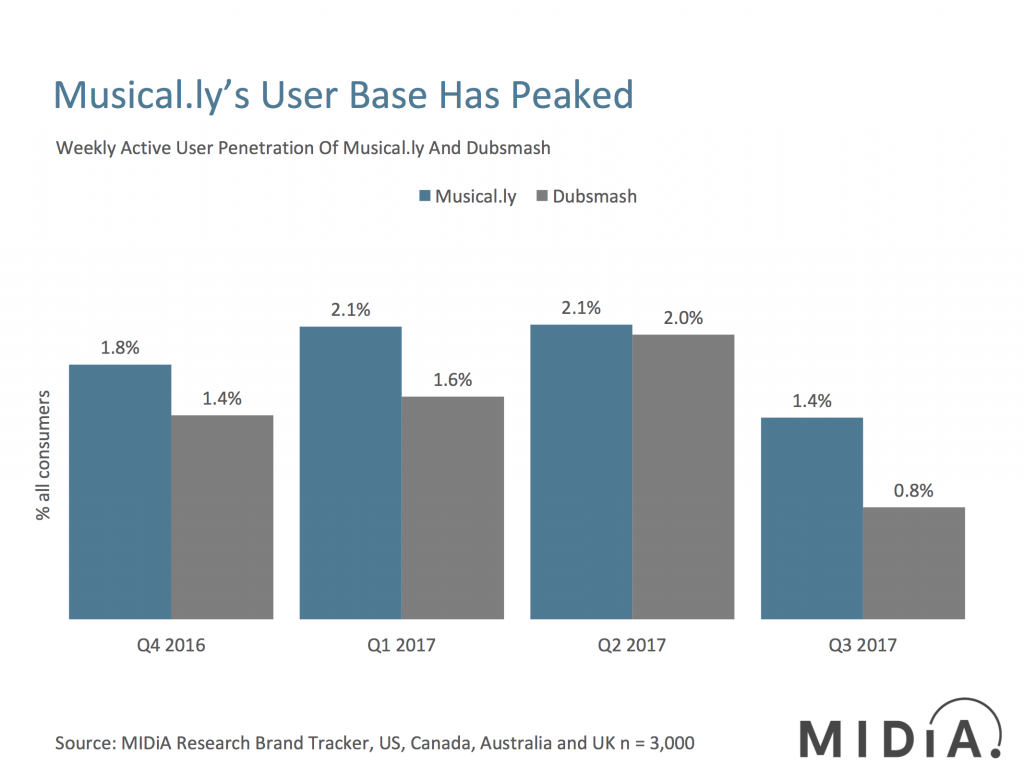Musical.ly Sells For $800 Million But Peaked By Being Too Silicon Valley

News has just emerged that lip synching app Musical.ly is to be sold for between $800 million and $1 billion to Chinese company Jinri Toutiao, which also bought Musical.ly predecessor Flipagram. I’ve long held the belief that Musical.ly and competitor companies like Dubsmash represent some of the only genuinely needle moving user experience innovation in music of recent years. Musical.ly introduced the concept of the 15-second song and shone a light on how to engage Gen Z with music-led experiences by playing by their rules not the traditional music industry’s rules. In doing so it created a whole generation of Musical.ly stars, such as Baby Ariel, who has 20 million Musical.ly followers.
But, as with all previous lip synching and music messenger apps, Musical.ly has run into its inevitable user base peak and is now starting its equally inevitable decline. According to data from MIDiA’s Quarterly Brand Tracker, weekly active users (WAU) across the US, UK, Canada and Australia and was just 1.4% up in Q3 2017, down from a high of 2.1% in Q1. Dubsmash is following a similar trajectory.
So, what’s gone wrong for Musical.ly?
To be clear, Musical.ly is not a failing company but it is beyond its peak. Musical.ly did an amazing job of laser targeting, becoming one of the destinations of choice for teen and tween females. More than four fifths of its user base are female. It recognized that the opportunity for this segment wasn’t full albums, nor even full tracks. It was short clips of music that they could use to express, and identify, themselves. In Musical.ly, music was the tool for Gen Z identity, not consumption. It tapped into Gen Z’s desire to digitally peacock, or to show off and say who they are. The problem for Musical.ly is that Snapchat and Instagram do a great job of this for these consumers too. Musical.ly became a one trick pony that suffered from not being able to use its core functionality as a beachhead for something much bigger. In the 20th century the railroad companies were disrupted by cars because they thought they were railroad companies and didn’t realise they were transportation companies. Similarly, Musical.ly got caught up with being a social music company rather than a social company.
In many respects Musical.ly was a victim of the West Coast VC bubble, following the mantra of obsessing with doing one thing really well. As a result, Silicon Valley has a habit of churning out feature companies rather than product companies. This isn’t a problem for VCs as it is easier for a company to buy and integrate a feature company, than it is a product company. But, it does leave the digital landscape unbalanced.
Jinri Toutiao has every opportunity to build a music messaging powerhouse with its acquired assets but to succeed, it will need to recognize that these are features not products.


The discussion around this post has not yet got started, be the first to add an opinion.